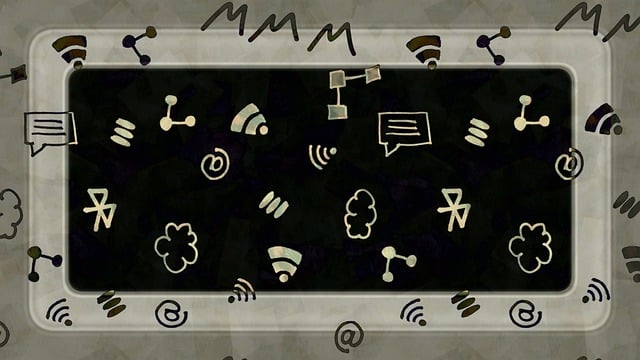Welcome to the future of email marketing and Reply Email Generator, where artificial intelligence takes the reins to revolutionize the way businesses connect with their audience. In this article, we’ll delve into the realm of AI-generated emails and responses, exploring the incredible impact they have on B2B lead generation. Buckle up for a journey into the world of innovative technology and its role in shaping the future of email marketing!

Unleashing Efficiency with AI Email Reply Generator
In the bustling world of digital communication, AI Email Reply Generators have emerged as vital tools for enhancing efficiency and accuracy in email correspondence. These innovative solutions, offered by various platforms, harness artificial intelligence to automate and refine the email response process.
Reply Email Generator: Personalization and Adaptability
Platforms like Willi.ai and Cohesive offer AI Email Reply Generators that emphasize personalization and adaptability. These tools allow users to select the tone of the email, ranging from professional to casual, ensuring that each response is not only contextually appropriate but also resonates with the recipient’s expectations. Users can tailor responses based on their unique voice, making each email feel personal and relevant.
Reply Email Generator: Time-Saving and Quality Responses
AI Email Generators, such as those provided by Toolsaday and HIX.AI, significantly reduce the time spent on drafting emails. By analyzing the input text, these tools generate quality replies that are both relevant and personalized. This not only saves time but also maintains a high standard of communication. Users can choose from various tones and languages, making these tools versatile for global communication.
Reply Email Generator: Streamlining Email Management
Platforms like HyperWrite AI and EmailTree.ai offer features that streamline the entire process of email management. From responding to client inquiries to managing customer support, these generators craft polished emails that effectively address the needs and queries of the recipients. They also provide options for customization, allowing users to align the responses with their intended message and style.
Reply Email Generator: Diverse Applications and Accessibility
AI Email Reply Generators cater to a wide range of applications. Taskade, for example, offers a suite of AI-driven generators, including Quick Reply Email Generators, which are designed to enhance communication across various scenarios. These generators are user-friendly and easily accessible, making them ideal for both individual and team use.
Reply Email Generator: Cost-Effective Solutions
Most AI Email Reply Generators offer different pricing plans to suit various user needs. Whether it’s a free plan with basic features or a premium plan with advanced functionalities, users can choose a plan that fits their requirements and budget. This flexibility in pricing ensures that businesses of all sizes can benefit from the efficiency of AI-driven email communication.
AI Email Reply Generators represent a paradigm shift in how we handle digital communication. By offering personalized, efficient, and high-quality email responses, these tools not only save time but also enhance the effectiveness of email interactions. Whether for personal use or professional correspondence, AI Email Reply Generators are proving to be indispensable assets in the digital age.

GetResponse as an AI-Powered Email Reply Generator
GetResponse has integrated advanced AI technology to enhance its email marketing capabilities, offering users a powerful and efficient way to create and manage their email communications.
AI Reply Email Generator
GetResponse’s AI Email Generator is a remarkable tool that leverages the latest OpenAI technology to boost the effectiveness of email marketing campaigns. It allows users to create industry and goal-optimized subject lines and content, significantly decreasing the time required to create engaging emails. With this feature, GetResponse users have reported an 85% decrease in email creation time, enabling them to focus more on strategy and less on execution.
Unlock the Joy of Effortless Email Creation for a Truly Heartwarming Experience
The GetResponse Email Creator makes it easy to design visually appealing emails from scratch. This tool is particularly user-friendly as it doesn’t require knowledge of HTML or web design. With its drag-and-drop functionality, users can craft eye-catching emails effortlessly, which is beneficial for businesses of all sizes looking to improve their email marketing.
Personalization and Engagement
GetResponse’s AI features allow for high levels of personalization in email marketing. The platform’s AI algorithms enable users to craft messages that feel like they’re directly addressing each individual recipient, enhancing the engagement level. This level of personalization is akin to having a conversation with each recipient, making the emails more effective and impactful.
Analytics and Optimization
With its robust analytics, GetResponse helps users understand and adjust their campaigns for optimal performance. Users can conduct A/B testing with different content versions to see what resonates best with their audience, ensuring that every email sent is fine-tuned for maximum impact. This feature is crucial for businesses looking to constantly improve their communication strategies.
Diverse Plans and Pricing
GetResponse offers various plans to suit different needs and budgets. From a free plan for basic features to more advanced plans that include AI email generation and marketing automation tools, there’s an option for every type of user. The platform is designed to cater to both beginners and experienced marketers, making it a versatile choice for different business sizes and types.
In conclusion, GetResponse’s integration of AI technology into its email marketing suite presents a powerful tool for businesses looking to enhance their email campaigns. With features like AI email generation, user-friendly design tools, and robust analytics, GetResponse stands out as a comprehensive solution for modern email marketing needs.
The Significance of Email Marketing in B2B Lead Generation

Email marketing has long been a cornerstone of B2B lead generation strategies. Its ability to establish direct communication with potential clients and nurture relationships over time makes it an invaluable tool for businesses. However, as the digital landscape evolves, so do the demands and expectations of email recipients.
Enter the era of AI-generated emails, where precision meets personalization to create a seamless experience for both senders and receivers. This technological marvel doesn’t just automate the process; it elevates it to a whole new level, providing businesses with a powerful arsenal for successful lead generation campaigns.
The Evolution of Email Marketing: From Sequences to Generative AI
As businesses strive to stay ahead in the competitive landscape, the use of email sequence generators has become commonplace. These tools enable marketers to craft a series of targeted emails, guiding leads through a strategic journey. However, the game-changer lies in the integration of generative AI for email marketing.
The AI email response generator, email reply generator, and sales email generator in Cluster 3 are not just tools; they are digital architects shaping the narrative of your outreach efforts. Imagine having an AI-powered assistant crafting personalized and engaging responses, ensuring your communication resonates with your audience on a deeper level.
The Role of AI in Crafting Compelling Email Subject Lines
One of the critical elements in email marketing is the subject line—a make-or-break factor that determines whether your email gets opened or languishes in the depths of the inbox. Here, the AI email subject line generator proves its mettle. Through sophisticated algorithms and analysis of user behavior, it tailors subject lines that captivate attention and drive open rates.
AI-generated email templates, born from a fusion of data analytics and creative prowess, provide a solid foundation for crafting campaigns that not only reach your audience but also resonate with them. The level of personalization achievable with AI-generated content is unparalleled, leading to higher engagement and conversion rates.
The Cold Truth: AI in Cold Email Lead Generation
For businesses engaged in cold email lead generation, the AI-powered cold email lead generation agency is a game-changer. It goes beyond the conventional approaches, leveraging data-driven insights to identify and target high-potential leads. The result? A streamlined and efficient lead generation process that maximizes your outreach efforts.
The Mass Appeal of Mass Email Generation
Mass email generation takes a leap forward with AI, ensuring that each email feels crafted for an individual rather than a faceless crowd. The mass email generator in Cluster 3 brings scalability without compromising on personalization, making it a valuable asset for businesses aiming to reach a broad audience without sacrificing the nuances of tailored communication.
Embracing the Future: AI-Generated Emails and the Bottom Line
As we navigate the ever-evolving landscape of digital marketing, the integration of AI in email marketing is not just a trend; it’s a strategic imperative. The AI email response generator, email sequence generator, and their counterparts are not here to replace human touch but to amplify it.
Businesses that embrace the power of AI-generated emails position themselves at the forefront of innovation, gaining a competitive edge in B2B lead generation. The future is now, and it’s shaped by algorithms that understand, engage, and convert. Are you ready to let AI redefine your email marketing success?
Revolutionizing Email Management with AI
AI-Generated Email Responses and Templates
The core of any effective email response generator lies in its ability to create AI-generated email responses. With AI email template generators, businesses can quickly draft emails that are not only contextually appropriate but also tailored to the recipient’s needs. These AI email response templates, a key feature in CRM automation, ensure consistency and personalization in communication, a crucial aspect in maintaining customer relationships.
Automating Email Sequences for Efficiency
Email sequence generators are a boon for marketing and sales teams. By automating sequences, from initial contact to follow-up emails, these tools help maintain a steady flow of communication with prospects. For instance, a follow-up email generator can automatically send a series of emails based on triggers or actions taken by the recipient, ensuring timely engagement without manual effort.
Enhancing Email Design and Content
AI email design generators go beyond text, allowing users to create visually appealing emails with minimal effort. These tools, integrated within platforms like GetResponse, offer a range of customizable email scripts and layouts, catering to various business needs – from newsletters to sales promotions. AI-generated email templates offer a blend of aesthetic appeal and content relevance, significantly enhancing engagement rates.
Specialized Generators for Specific Needs
The versatility of AI in email generation extends to specific types of emails. For instance, a thank you email generator can craft appreciative responses after a client interaction or purchase, while an auto email reply generator is perfect for setting out-of-office or support messages. These specialized tools ensure that every aspect of email communication is covered efficiently.
Bridging the Gap with Voice Description Generators
Voice description generators represent an innovative frontier in email automation, especially useful in creating emails that need to convey tone and emotion effectively. By understanding the nuances of voice and tone, these generators can craft emails that resonate more personally with recipients.
FAQ about Reply Email Generator
What are the benefits of using a reply email generator?
A reply email generator can help you save time, avoid mistakes, and impress your recipients with professional and personalized email responses. You can also use a reply email generator to handle common inquiries, follow-ups, feedback requests, and more.
How does a reply email generator work?
A reply email generator analyzes the email you are replying to and generates a few sample responses for you to choose from. You can edit, customize, or send the responses as they are. Some reply email generators also allow you to adjust the tone, style, and level of formality of your responses.
What are some examples of reply email generators?
There are many reply email generators available online, such as:
- Willi.ai: A multilingual email reply generator that lets you write email replies in any language by typing keywords. It also offers other writing tools such as blog article writer, ad copy writer, and cover letter writer.
- Typli.ai: A free AI response generator that provides three different responses for the email you are replying to. It also offers other free AI writing tools such as essay rewriter, sentence expander, and blog title generator.
- Hix.ai: An AI email writer that generates relevant and personalized email responses based on your input email text. It also offers other email writing tools such as new email generator, cold email writer, and follow-up email writer.
- GetResponse: a service that offers email marketing and beyond. It allows you to create and send emails, grow your list, and automate communication with your contacts. You can also use GetResponse to create landing pages, websites, webinars, and e-commerce campaigns. GetResponse has different plans and pricing based on your needs and goals. You can try it for free for 30 days or choose a paid plan with custom domains, dedicated support, and discounts for associations and NGOs.






